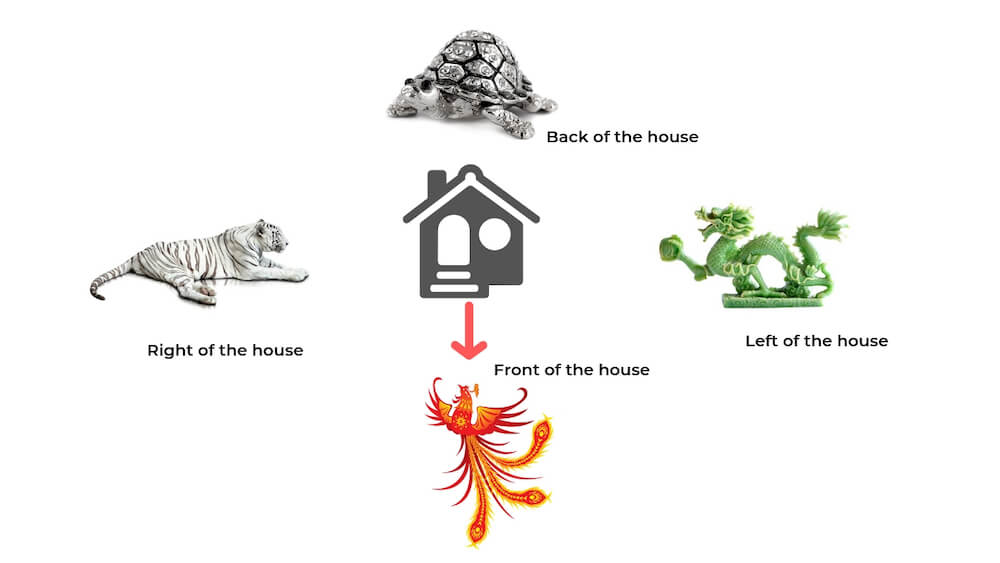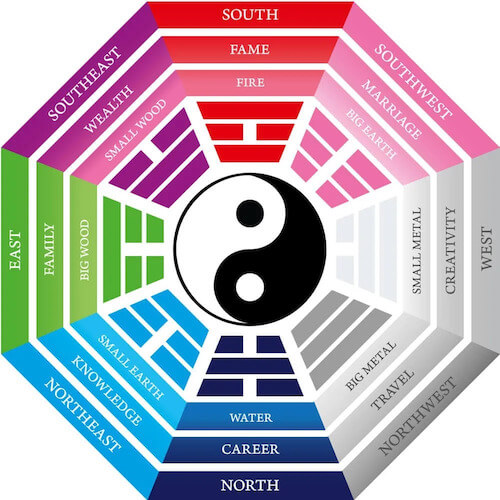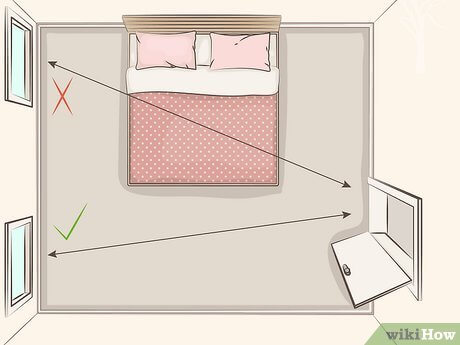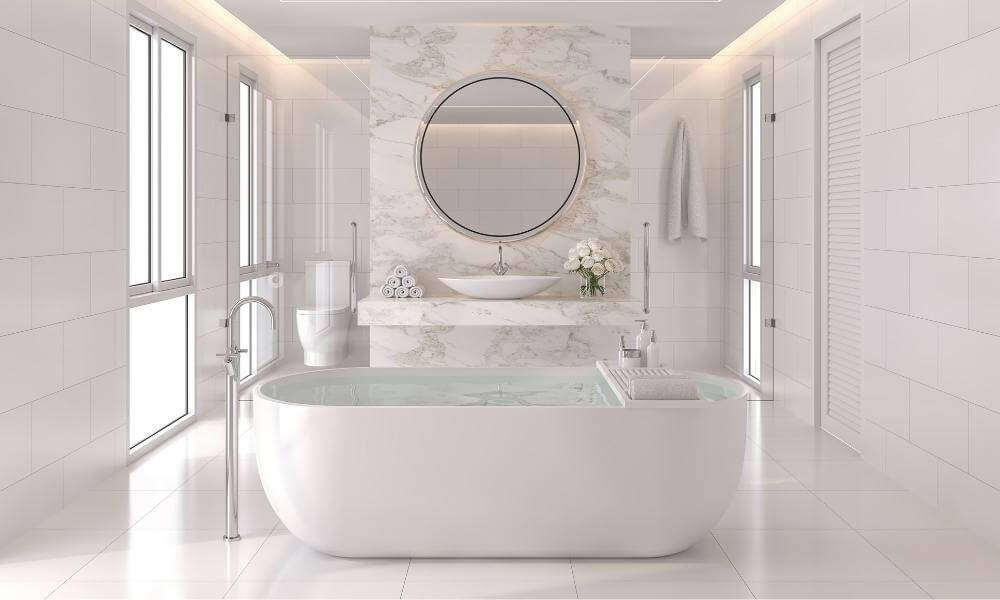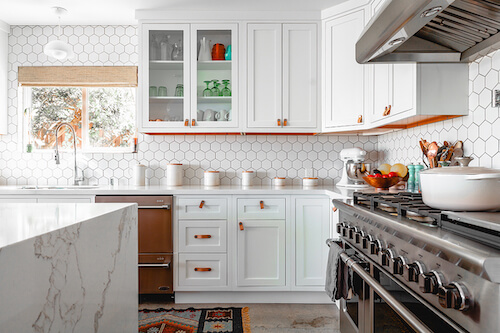What’s Feng Shui // The Ultimate Guide
Feng Shui is an ancient Chinese philosophy that advocates for living in harmony with nature to attain balance in life.
- 风 fēnɡ – wind
- 水 shuǐ – water
These elements represent the flow of energy that shapes the earth and its characteristics.
In China, Feng Shui experts are consulted to interpret the location of buildings and the surrounding landscapes to reduce the negative energy that could affect people living in that place.
Let’s find out all you need to know about Feng Shui philosophy and how to implement it in your house!
Feng Shui | Origins
Feng Shui | The 4 celestial animals
Feng Shui | Bagua map
Feng Shui | The entrance
Feng Shui | The bedroom
Feng Shui | The bathroom
Feng Shui | The kitchen
Feng Shui | The living room
Feng Shui | Windows
Feng Shui | Conclusions

Feng Shui | Origins
Feng Shui originated in China during the Warring States period (476-221 BC) and was initially called Kan Yu (堪舆 kānyú), which means “sky and hearth.”
The name Feng Shui was first used by the Chinese poet and historian, Guo Pu, in his masterpiece “Book of Burial.”
In ancient times, Feng Shui experts were secretly hired by emperors to not waste their knowledge.
They were consulted not only to decorate rooms and palaces, but also to prepare war strategies and assess the suitability of land for a new village.
Feng Shui | The 4 celestial animals
To determine whether a location is suitable for building a house or a building, it is necessary to check if the landscape has the 4 celestial animals, also known as guardians of directions:
- Black Tortoise: it symbolises protection and longevity and is located in the north. In ancient China, cold winds came from the north and, therefore, a protective shield was necessary. It is represented by high mountains or buildings in nature.
- Green Dragon: it is located in the east and is represented by a small hill in nature. The lack of a green dragon near the house can lead to financial problems.
- White Tiger: it is located in the west and provides its support from the ground or through hills. The lack of a white tiger can cause instability and confusion in the house.
- Red Phoenix: it is in the south. In nature, it can be found as a large space in front of the entrance that encourages the entry of vital energy known as 气 (qì).
Feng Shui | Bagua map
Feng Shui tradition wants the house plant to be square or rectangular, and each room should be placed following the cardinal points: the entrance to the north and the rooms to the south.
When consulting a Feng Shui expert, they compare the house plant with a geometric map called Bagua, divided into “areas” related to one of the 5 elements (water, metal, wood, fire, earth) and a specific aspect of life:
- Fame: this area is related to desires, and its element is fire. Decorate the room with candles.
- Wealth: this area is represented by the element of wood, and therefore, it should be decorated with lots of plants.
- Family: this area is related to our roots and also dominated by wood.
- Knowledge: this area is related to thoughts, and should be furnished with soft lights and materials to encourage meditation.
- Career: this area is related to how we show ourselves to the world and is dominated by water.
- Travel: this area is related to social relationships. Here everything is about those people who are part of our journey, therefore it should be decorated with photos.
- Marriage: this area is dedicated to how we relate to people who love us. The furniture should be in pairs.
- Center: this area represents Yin and Yang and should be well-balanced. Decorate with crystal balls that balance energies.
Even colours have a specific position: warm colours should be used in rooms located in the south and cool ones in rooms located in the north.
Feng Shui | The entrance
The entrance of our homes is where the vital force (气 qì) enters as a guest.
It is crucial to have a clear entrance, without unnecessary objects, and well-lit to facilitate the flow of Qi.
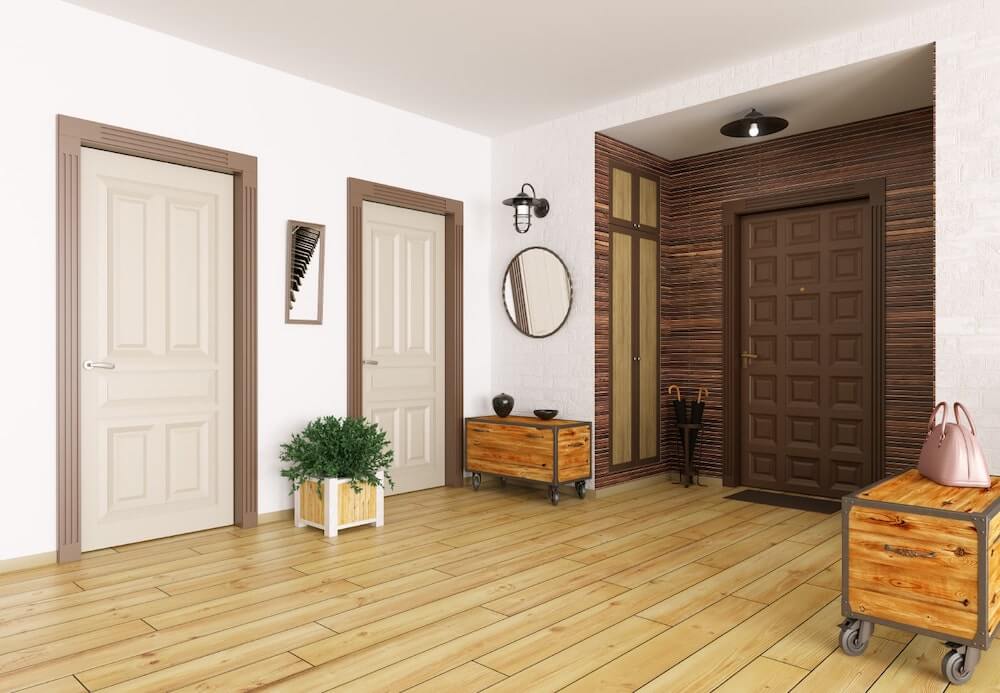
The door should be able to open fully, at least 90°, otherwise it implies that we are missing out on life’s opportunities.
Therefore, accumulating clutter that hinders the door’s opening should be avoided at all costs
Feng Shui | The bedroom
The position of the bedroom in the house is crucial to apply Feng Shui effectively.
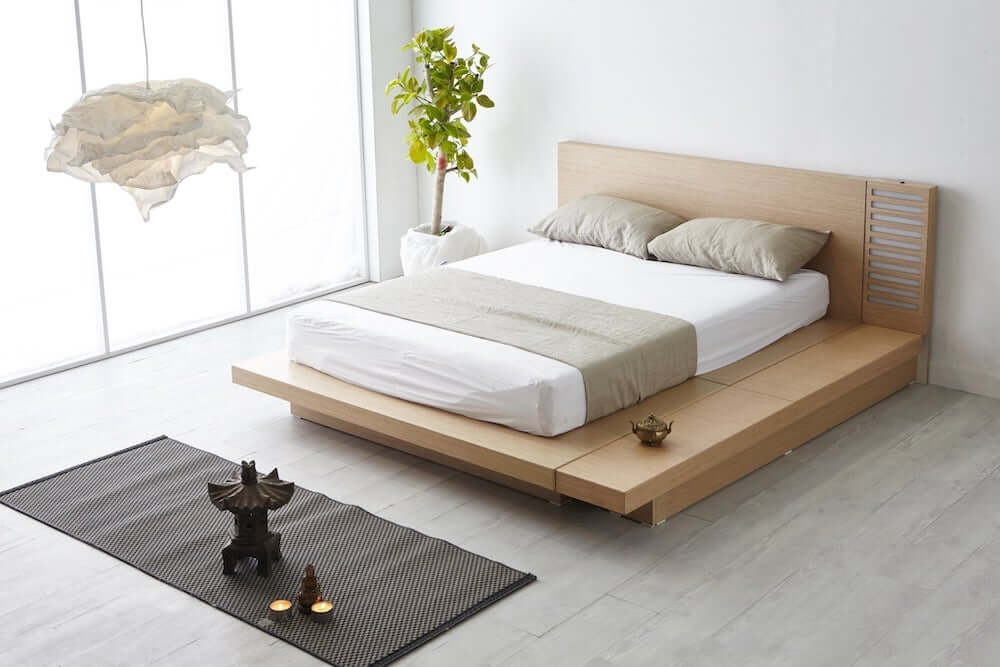
It should be away from the main entrance and street, preferably near a green space and a small stream.
The bed should be placed diagonally opposite the entrance door, with the headboard facing east.
Mirrors in the bedroom should be avoided, as they interfere with the energy field and disturb sleep.
Feng Shui | The bathroom
The bathroom should be located in the water area, northwards, away from the kitchen, which is in the fire area.
Two opposing elements cannot be close together, as it would cause energy dispersion.
During the design phase, it is good practice to separate the bathroom from the toilet.
The preferred furniture is rounded and with elements that recall nature.
In this case, it’s allowed to have a mirror, but be careful not to place two mirrors facing each other! This would cancel out the positive energies.
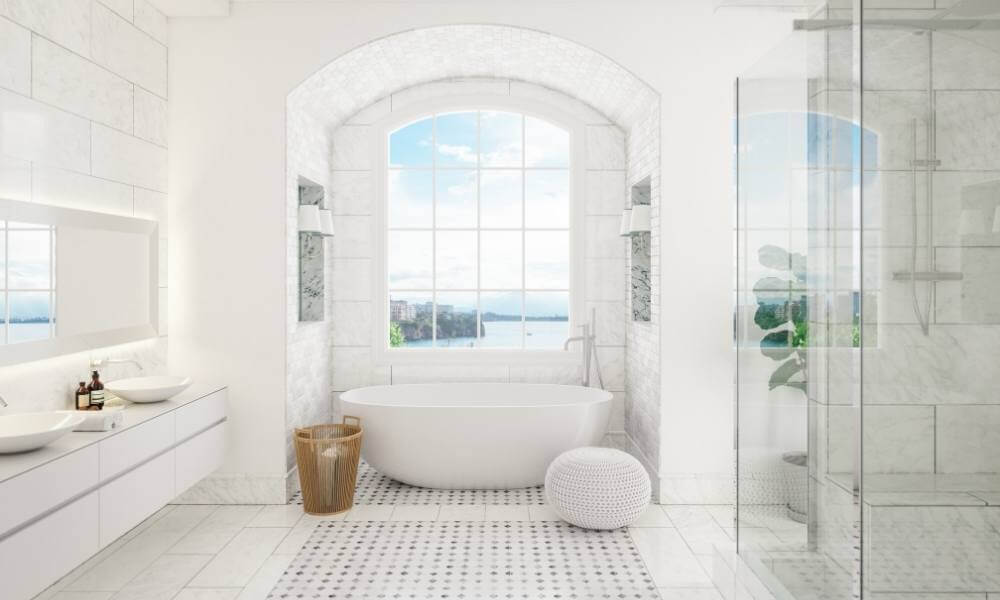
Feng Shui | The kitchen
According to Feng Shui, the kitchen should be positioned far away from the other rooms to prevent odors from contaminating them.
The cooking hob should be positioned in a way that the person cooking doesn’t have their back to the door, ensuring a greater sense of security and not dispersing their positive energies.
For the same principle that the kitchen and bathroom should be far apart, the stove and oven should also be distant from the sink and refrigerator.
Wood is a preferred material for this room.
Feng Shui | The living room
The living room is where food should be consumed, and the preferred shape for the table is round, as it encourages communication.
It’s better to avoid a table for four people because the number 4, whose Chinese pronunciation (四 sì) sounds like “death” (死 sǐ), is considered bad luck in China.
The sofa should be placed against the wall to provide a sense of security to those who sit on it.

Soft furnishings, plants, and candles can be used to decorate the living room, and it should be well-lit with natural light.
Feng Shui | Windows
According to Feng Shui, windows are considered the eyes of the house.
It is crucial to clean them well to allow sunlight, the source of vitality and energy for humans, to enter the house.
The cleaner the windows are, the more positive energy will be transmitted to those who live there.
Feng Shui | Conclusions
Feng Shui is an ancient philosophy that has been used for thousands of years to promote well-being and positivity.
By applying the principles of Feng Shui to our homes, we can create a harmonious environment that promotes positive energy and balance.
The practice can be adapted to any space, whether indoors or outdoors, to create a peaceful and serene atmosphere.
Feng Shui truly leaves nothing to chance, even the organization of the storage closet has its own harmony!
Are you familiar with Feng Shui and have you ever used it in your space? Feel free to share your experiences in the comments section!
Feng Shui – FAQ
What’s Feng Shui?
Feng Shui is an ancient Chinese philosophy that advocates for living in harmony with nature to attain balance in life. It interprets the location of buildings and the surrounding landscapes to reduce the negative energy that could affect people living in that place.
What’s the meaning of Feng Shui?
风 fēnɡ – wind
水 shuǐ – water
What are Feng Shui origins?
Feng Shui originated in China during the Warring States period (476-221 BC) and was initially called Kan Yu (堪舆 kānyú), which means “sky and hearth.”
Which are the 4 celestial animals?
Black Tortoise, Green Dragon, White Tiger, Red Phoenix.
What’s Bagua map?
It’s a geometric map divided into “areas” related to one of the 5 elements (water, metal, wood, fire, earth) and a specific aspect of life.
Why is the entrance so important in Feng Shui?
Because it’s where the vital force (气 qì) enters as a guest.
According to Feng Shui, where should the bed be placed?
The bed should be placed diagonally opposite the entrance door, with the headboard facing east.


 Hi, my name is Mojca! I am from Slovenia and I work as a student advisor at our Shanghai school.
Hi, my name is Mojca! I am from Slovenia and I work as a student advisor at our Shanghai school.
